Patrick Kavanagh
The One
Patrick Kavanagh’s poem “The One” is about seeing beauty in the ordinary places of home. One of Ireland’s most famous poets, Kavanagh grew up in rural County Monaghan and moved to Dublin as a young man. This poem revisits the boglands of his home, which he once hated but came to love.
A question to reflect on after you listen: Think about where you’re from. How has your understanding of it changed over time?
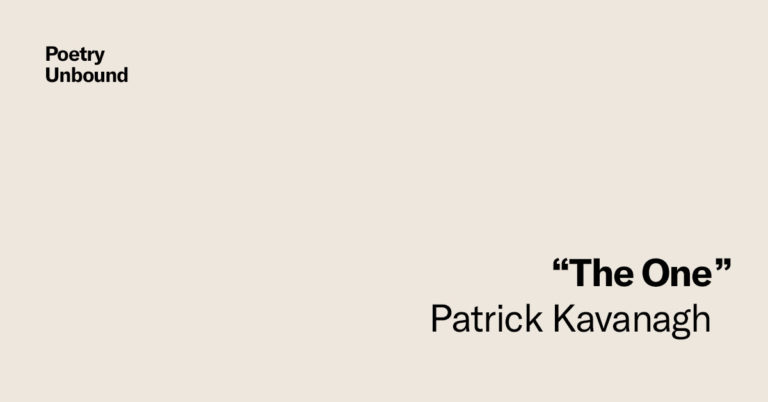
Guest
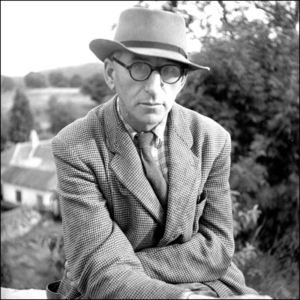
Patrick Kavanagh was a prominent Irish poet and writer who died in 1967. His books include the memoir, The Green Fool, the novel Tarry Flynn, and the poetry collections The Great Hunger, The Complete Poems of Patrick Kavanagh, and Collected Poems.
Transcript
Pádraig Ó Tuama, host: My name is Pádraig Ó Tuama, and I’m a poet from Ireland. And I have sometimes turned to poetry when I need to look to describe the most devastating thing that’s happening around. But more often, these days, I’m turning to poetry when it makes me smile as I read it because the words are delicious, because it’s describing something of great delight, of great simplicity, and of great lightness of being.
[music: “Into the Earth” by Gautam Srikishan]
“The One” by Patrick Kavanagh:
“Green, blue, yellow and red-
God is down in the swamps and marshes
Sensational as April and almost incred-
ible the flowering of our catharsis.
A humble scene in a backward place
Where no one important ever looked
The raving flowers looked up in the face
Of the One and the Endless, the Mind that has baulked
The profoundest of mortals. A primrose, a violet,
A violent wild iris- but mostly anonymous performers
Yet an important occasion as the Muse at her toilet
Prepared to inform the local farmers
That beautiful, beautiful, beautiful God
Was breathing His love by a cut-away bog.”
Irish schools tend to choose one of two poets to focus on for your final exams when you’re 17 or 18, either Seamus Heaney or Patrick Kavanagh. My school chose Patrick Kavanagh. And I despised him. I hated him with every part of my being. And I loved hating him. He complained about his life; “Shut up about your life.” And he was a deeply dissatisfied man. And I thought, like, “Stop sharing your dissatisfaction with the populace of Irish young people. Leave us alone.”
And then, I went to move to Australia, and seized by an impulse the afternoon I was leaving — I think my flight was in the afternoon; I was in the city with my siblings and my parents, and we’d all gone out for a cup of coffee, and dad was about to drive me to the airport. And I said, “Hang on a sec,” because I was near a bookshop. And I went in and bought a collection of Paddy Kavanagh’s stuff. And my sister said, “I thought you hated him.” And I’m like, “I do.” But I didn’t know why, I needed to bring him with me when I moved to Australia. And so sometimes, I think, there’s poetry that you can only return to with experience in your life — which isn’t to say that you’re more intelligent now or that the poem evades you at different times. It is to say that there are certain periods of your life when you’ve come in contact with your own self-hatred, where you can then go back to the self-hatred of the poet, like Patrick Kavanagh, and go, “Oh, I know what you’re on about.”
Patrick Kavanagh grew up in a rural part of Ireland, County Monaghan, an Ulster County. And he arrived into Dublin with all of this desire and ambition to be a poet, and brilliant, already formed at that stage, as a man in his 20s. And at the time he arrived, Dublin was filled with fairly well-to-do poets, all of whom were writing about the “peasant poet.” And then, suddenly, there arrives in Dublin City a peasant poet, an actual one. And he was treated with all kinds of disdain because, I think, some of the Dublin literature society liked the idea of the peasant poet, but then they made him feel crap for being one. He felt like the language he knew was the language of flowers and colors and the bog and hatred and the gate into the field where the cows are, and the side of a hill that will never see the sun, because the side faces to the north.
He knew all those things, and it was enviable, and so people did what they do all the time — they made him feel terrible about being himself. He wrote a literary magazine, and if you ever came under his pen of criticism, he was not kind to you. People read it because he was so insightful, but it felt like there was the way within which the hatred he received, he turned that into a practice and then churned that out.
And about ten years before he died, he fell in love. And it’s during that last ten years of his life, love reopened him to be the person he always had been, with this gorgeous fluency of land, of color, of bog, of the Irish rural landscape. He wasn’t trying to prove anything anymore. And suddenly — this poem, I think, sums up his life, and it opens you up.
I used to think that only people from rural places or from places where there wasn’t enough money in the family felt awkward about where they were from. But then you meet people from all kinds of backgrounds, and somebody who I think is deeply privileged starts to say, “Oh, yeah, I wish my life was different too. I wish I grew up somewhere else.” I remember being shocked, the first time I heard that from somebody who I met, and I thought, “What do you have to feel inadequate about, in terms of the background? You’ve had such a privileged life.” But they had — whatever hollowness that was part of their life that they had to form a relationship to.
And Patrick Kavanagh, towards the end of his life, his poetry is drawing everybody back to that bog where nobody’s looking, but it’s where you’re from. It’s what you see. That’s the source of self and home that you need to return to without hatred, without self-comparison in light of the other important people or the things that are important in the world of literature or whatever world you find yourself in, and to find yourself located in that place, because to find your location there is like having a mother-tongue.
And that is a deep and human anxiety, to figure out what does it mean to be me, from where I’m from? And this isn’t saying, “Do it now. Do it quickly. Answer the question, the exam, and get over it when you’re 15.” This is saying, “You’ll probably be asking this question for the rest of your life,” and that there is the possibility of deepening your relationship with something that might once have been troubled.
“The One” by Patrick Kavanagh:
“Green, blue, yellow and red-
God is down in the swamps and marshes
Sensational as April and almost incred-
ible the flowering of our catharsis.
A humble scene in a backward place
Where no one important ever looked
The raving flowers looked up in the face
Of the One and the Endless, the Mind that has baulked
The profoundest of mortals. A primrose, a violet,
A violent wild iris- but mostly anonymous performers
Yet an important occasion as the Muse at her toilet
Prepared to inform the local farmers
That beautiful, beautiful, beautiful God
Was breathing His love by a cut-away bog.”
Lily Percy: “The One” comes from Patrick Kavanagh’s book Collected Poems, edited by Antoinette Quinn. Thank you to the trustees of the late Katherine B. Kavanagh Estate and to the Jonathan Williams Literary Agency, for letting us use Patrick’s poem. Read it on our website at onbeing.org.
Poetry Unbound is Tony Liu, Chris Heagle, Kristin Lin, Erin Colasacco, Serri Graslie, Eddie Gonzalez, and me, Lily Percy. Our music is composed and provided by Gautam Srikishan. This podcast is produced by On Being Studios, which is located on Dakota land. We also produce other podcasts you might enjoy, like On Being with Krista Tippett, Becoming Wise, and This Movie Changed Me. Find those wherever you like to listen, or visit us at onbeing.org to find out more.
Books & Music
Recommended Reading
The On Being Project is an affiliate partner of Bookshop.org and Amazon.com. Any earnings we receive through these affiliate partnerships go into directly supporting The On Being Project.









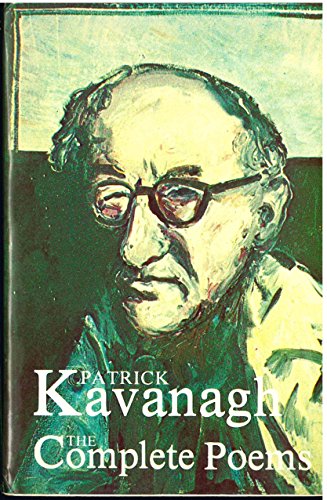
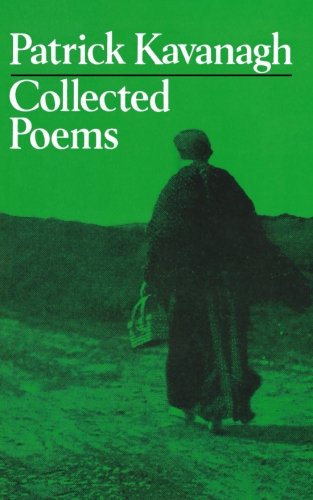
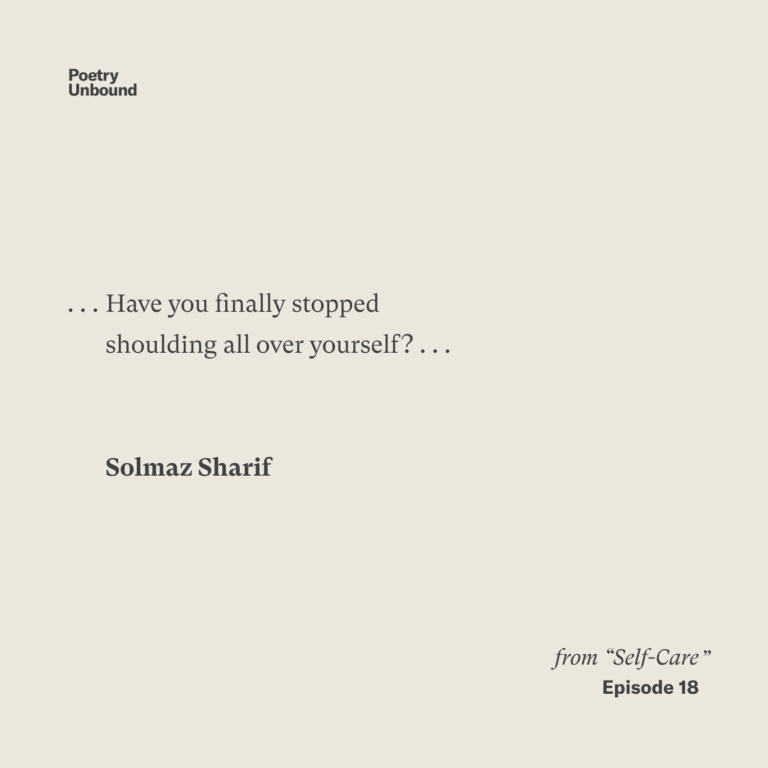
Reflections